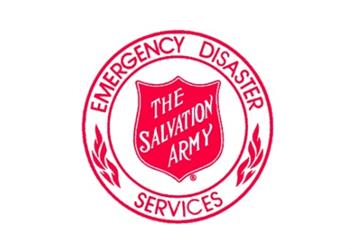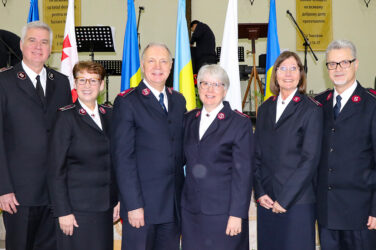A 7.3-magnitude earthquake which struck northern Venezuela on Tuesday 21 August is the latest in a string of disasters that have caused nearly 7 per cent of the country’s population to leave in the last two years. Economic and political factors have led to an estimated 2.3 million people leaving their homeland, according to UN figures. Inflation stands at more than 80,000 per cent and four-fifths of Venezuelans now live in poverty. The Salvation Army is responding to needs in the border regions, with a particular focus on education – to help prevent vulnerable refugees fall victim to human traffickers.
Food security and general health is a significant issue in some areas where the economy has been most severely affected. To meet immediate humanitarian needs, The Salvation Army has started a project in the northern Venezuelan cities of Maracaibo and Barquismimeto to provide hundreds of people with free, nutritious lunches every weekday. Breastfeeding mothers will additionally be supported with the provision of nappies (diapers), while 200 schoolchildren will be offered stationery items to help them continue to access education at this crucial time.
Meanwhile, The Salvation Army in Brazil is addressing the issue of human trafficking as refugees head across the Venezuelan border into Roraima. Working in partnership with the local UNHCR, CHAME (the anti-human trafficking agency in northern Brazil), the shelter for vulnerable women and children run by the Methodist Church and other churches in Roraima state, The Salvation Army has begun a programme of small group lectures and interactive learning. Venezuelan women refugees are being taught appropriate areas of Brazilian law and civil rights, while children and young people are being empowered with teaching about how to respond to difficult situations such as violence and sexual abuse, with the clear message that ‘no means no’.
All groups involved will be educated how to identify predatory signals common to human traffickers, and given practical advice on how to avoid the risk of becoming ensnared into situations of modern-day slavery. Printed materials are being produced and distributed in areas frequented by Venezuelan refugees.
The Salvation Army has also equipped the shelter with an additional 40 mattresses, bedding and other necessary resources, in order to ensure that it remains a safe and comfortable place to be as the refugees adapt to life in a culture and legislative framework other than their own.
A further Salvation Army response is being prepared in Buenos Aires, Argentina, where significant numbers of Venezuelan refugees are arriving.
IHQ Communications





